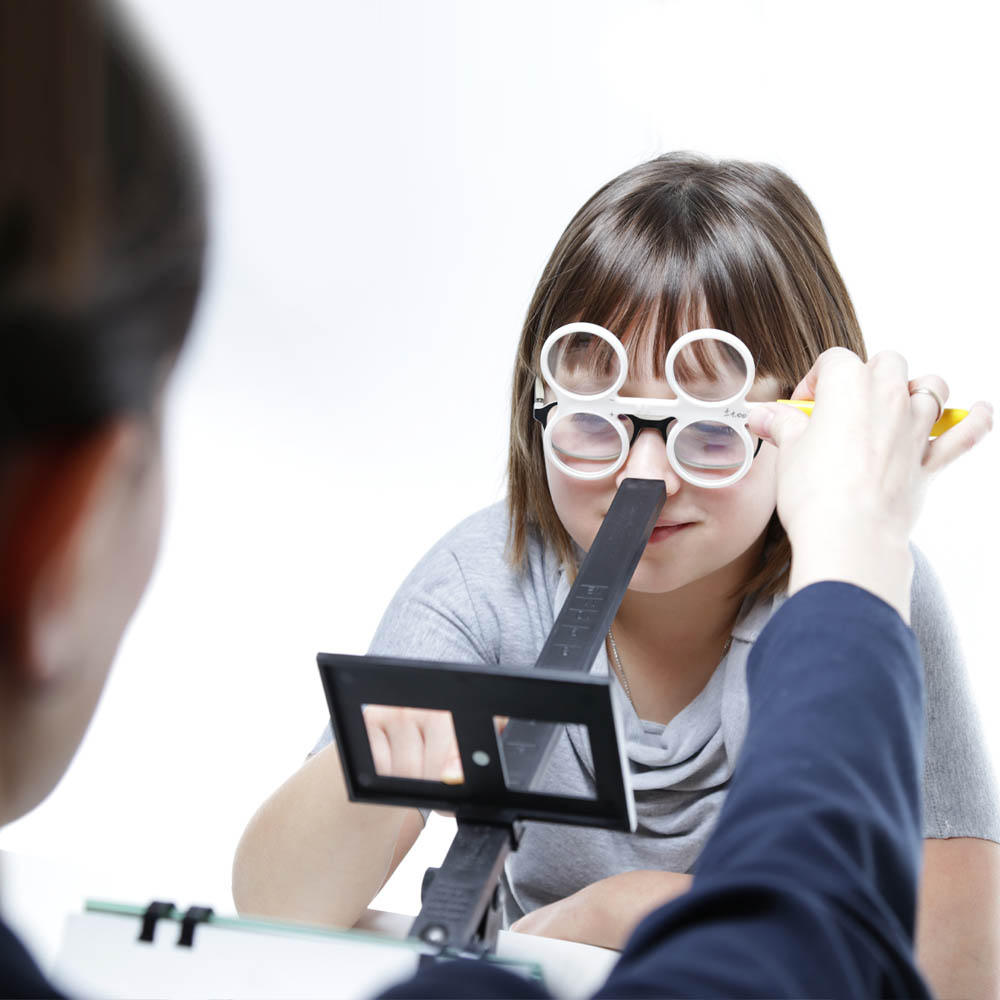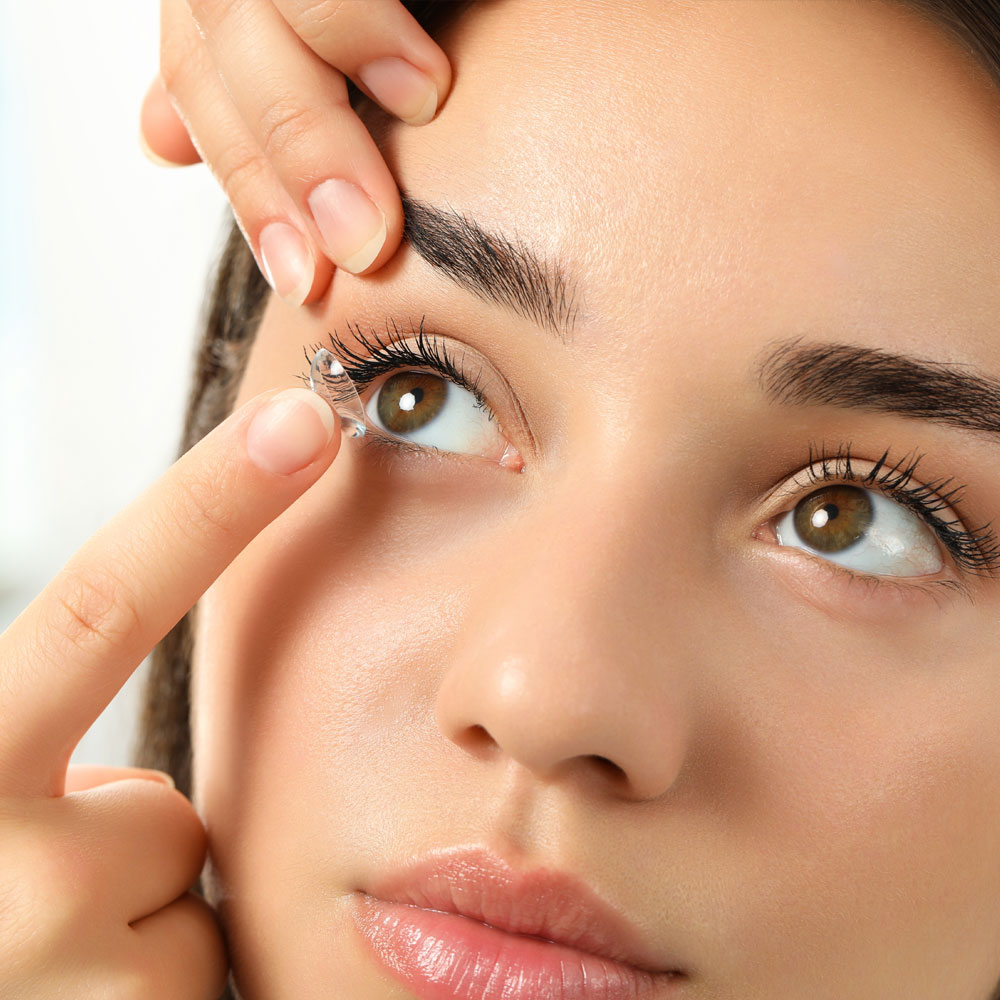
About Mountain View Eye Specialists
At Mountain View Eye Specialists, we strive to provide you with the best in eye care and eyewear. At our upscale office in Fort Collins, we combine state-of-the-art medical technology with warm, friendly customer service to provide you with the eye care you and your family deserve.
We have over twenty years of experience in providing quality eye care. Our goal is to provide you with personalized solutions for your eye health and lifestyle.
Our eye doctors take extensive continuing education to stay on top of the latest research in eye care. We strive to be the best at what we do, and to treat our patients as our family. We care about you and your eyes, and we will give them the best care possible.

Our Eye Care Services

Vision Therapy
Vision therapy is a scientifically-proven regimen of in-office and at-home exercises to train the brain and eyes to work together better. Find out how we can help.

Dry Eyes
Do you have dry, itchy, gritty-feeling eyes? Dry eye syndrome is a very common condition. We offer dry eye treatments at our eye care clinic.

Scleral Lenses
Scleral lenses are a great option for those with severe dry eye or abnormally-shaped corneas. Is this comfortable alternative to traditional contacts right for you?
Children with myopia are at higher risk for potentially sight-threatening vision problems. Save your child’s vision with myopia management.
Clear vision is an essential part of a child’s healthy development and learning. Regular pediatric eye exams can help detect and treat common issues.
Neuro Optometry trains healthy communication and coordination between the brain and eyes. This treats visual problems following concussions and other head injuries.
Orthokeratology is a non-invasive vision correction alternative to LASIK. Put in the specialty lenses while you sleep, and experience better vision in the morning.
LASIK and refractive surgery are great ways to say goodbye to contacts and glasses for good. Find out if you’re a good candidate.
From updating your eyeglasses prescription to detection and treatment of eye diseases, comprehensive eye exams are important for continued visual health.
During a contact lens exam, your eye doctor will check if you are a good candidate for contacts and find the best type of contacts for your needs..
If cataracts go untreated, they can cause total blindness in the affected eye. We can help with co-management of your cataract removal surgery.
Presbyopia is a normal part of aging. If you’re past 40 and notice you can’t read up close, our eye doctors may be able to help.
Over 50% of people living with glaucoma don’t know they have the disease as it shows no symptoms. Early detection and treatment can prevent blindness.
The ups and downs of diabetes can be difficult to navigate. How can diabetes affect your eyes? How can you and your eye doctor keep them healthy?
Eyeglasses & Frames
Designer Frames
Our extensive optical section offers a wide variety of eyeglass frames in every style, material & design. Come visit us today to see for yourself!
Our expert optical team can find just the right pair of glasses for you to be confident and look your best.
Lens coatings improve visual comfort, make it easier to clean your glasses and ensure your lenses last longer. Coatings include anti-scratch, anti-reflective, photochromatic and UV / blue light filters.
Contact Lenses
Contact Lens Fitting
We offer a wide range of contact lens options from dailies, monthly to multifocal contact lenses for crystal clear vision and superior comfort.
During a contact lens exam, your eye doctor will check if you are a good candidate for contacts and find the best type of contacts for your needs.

40% Off Complete Eyeglasses.
*Requires purchase of a complete prescription pair, including frame and lenses. Does not include sunglass frames, Barton Perreira, Cartier, Cazal, Chanel, Cutler and Gross, Dior, Dita Lancier, Fendi, Gucci, ic!Berlin, l.a. Eyeworks, Maui Jim, Mykita, Nifties, Oakley, Oliver Peoples, Persol, Ray-Ban, Robert Marc, Salt, Salvatore Ferragamo, Skaga, Silhouette, Tom Ford, WOOW, accessories, contact lenses, or medical procedures. Cannot be combined with any other discounts, promotions, or insurance plans. Not valid on previous orders. Other restrictions may apply. See practice for full details. Offer valid 04/08/2024-06/16/2024. 24AEG-729313





















